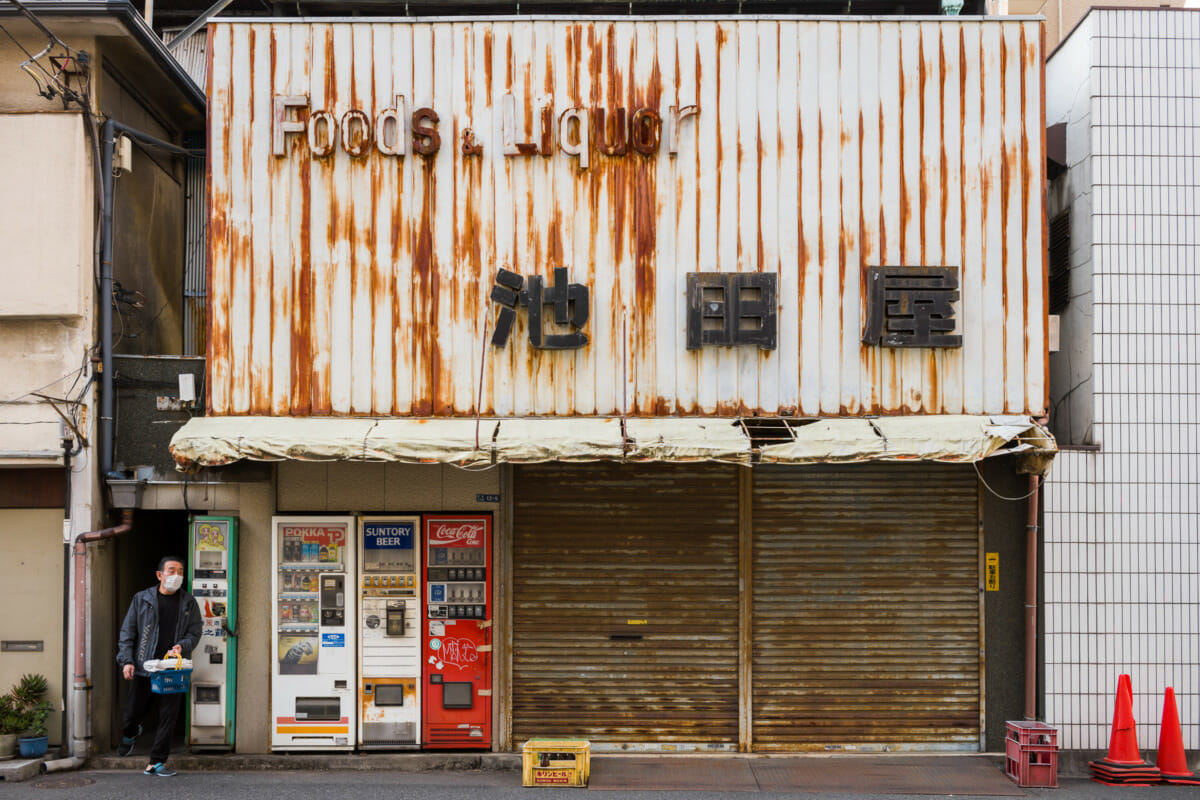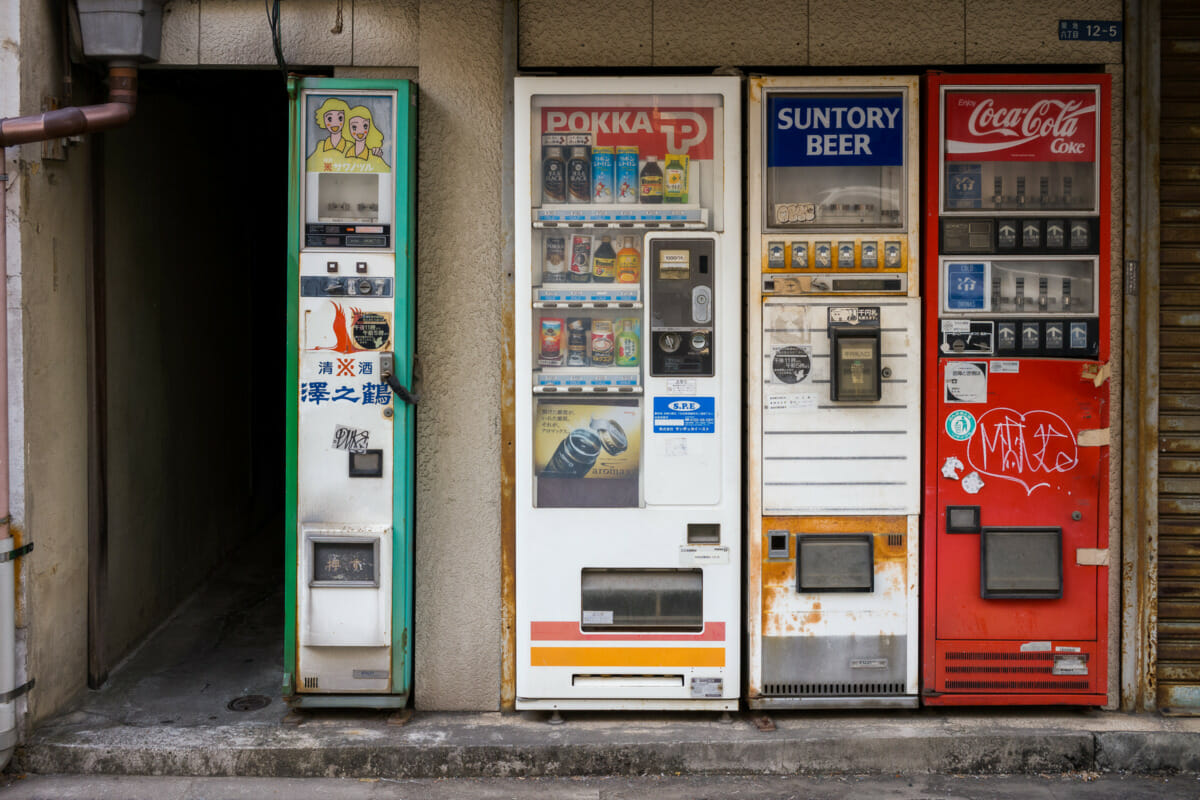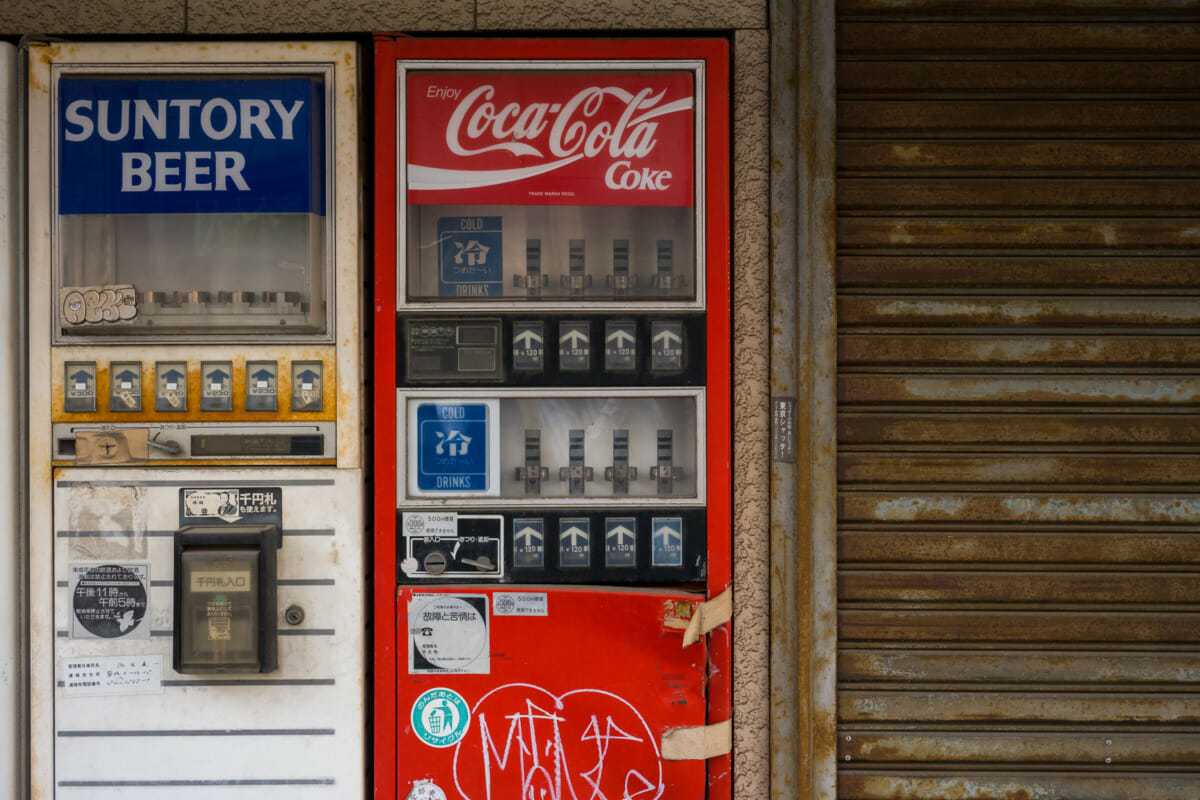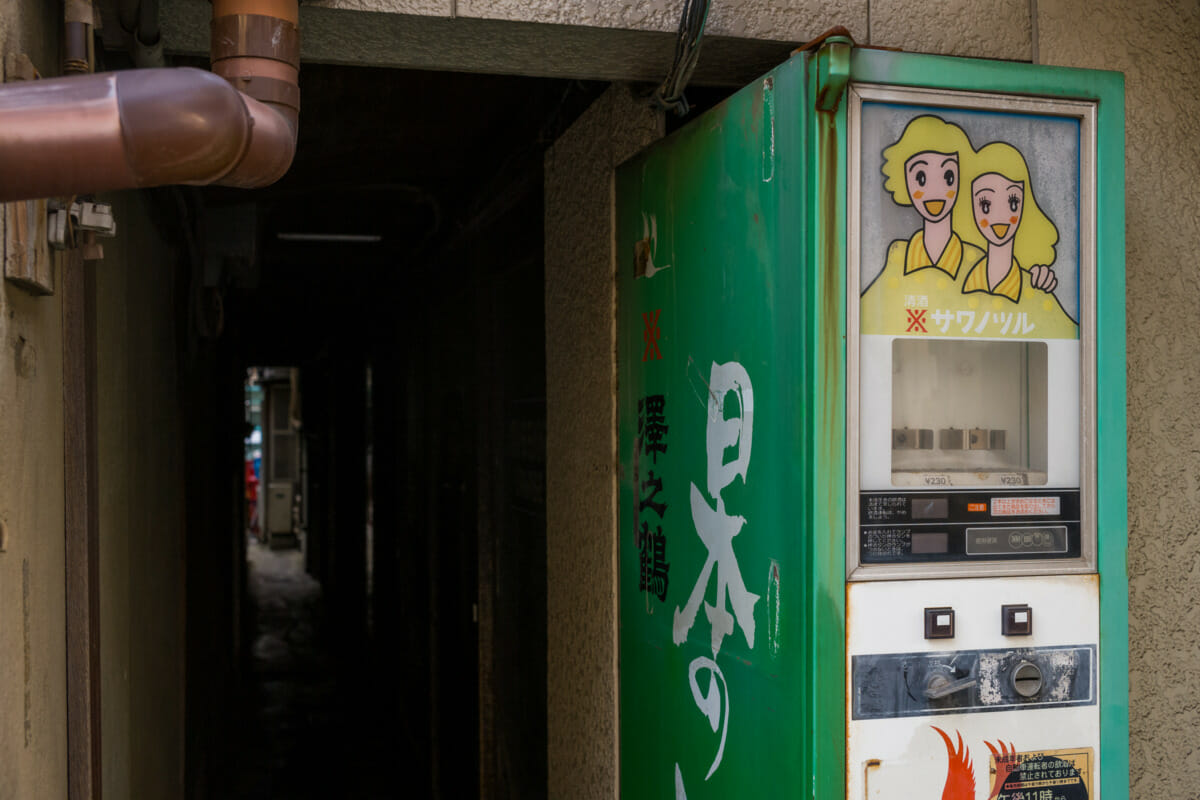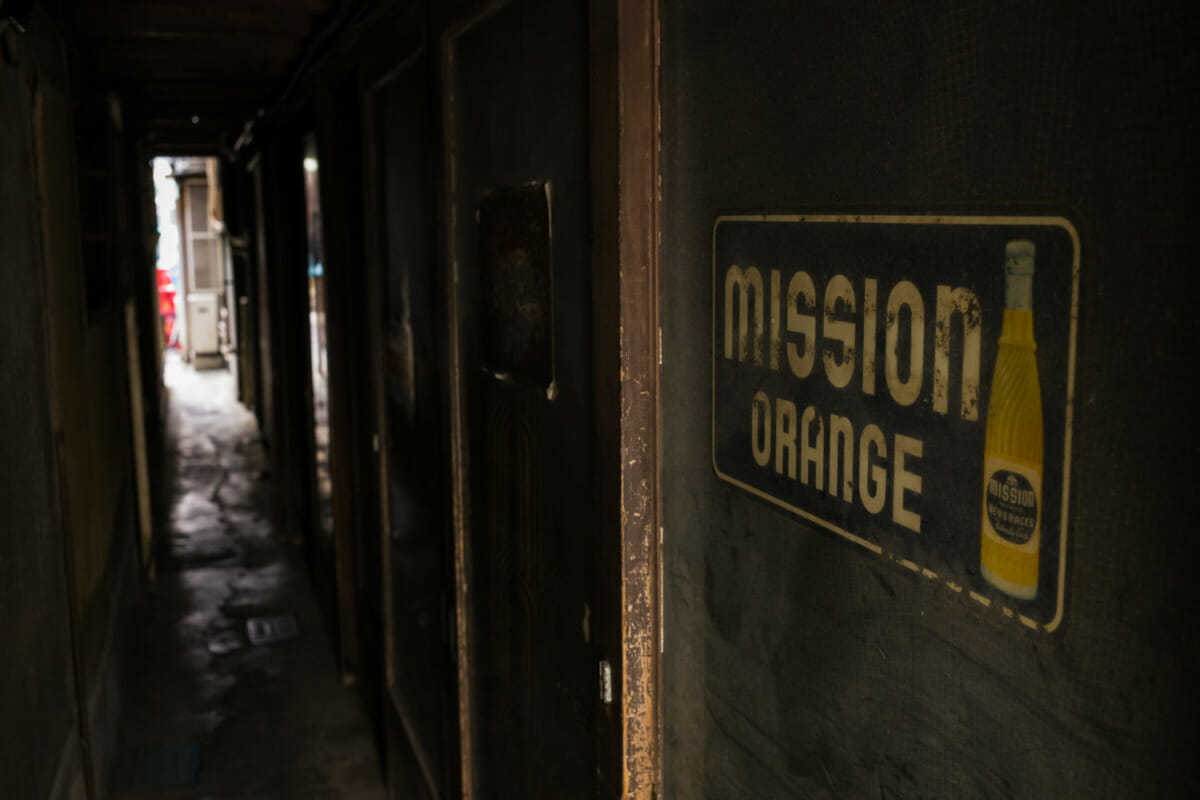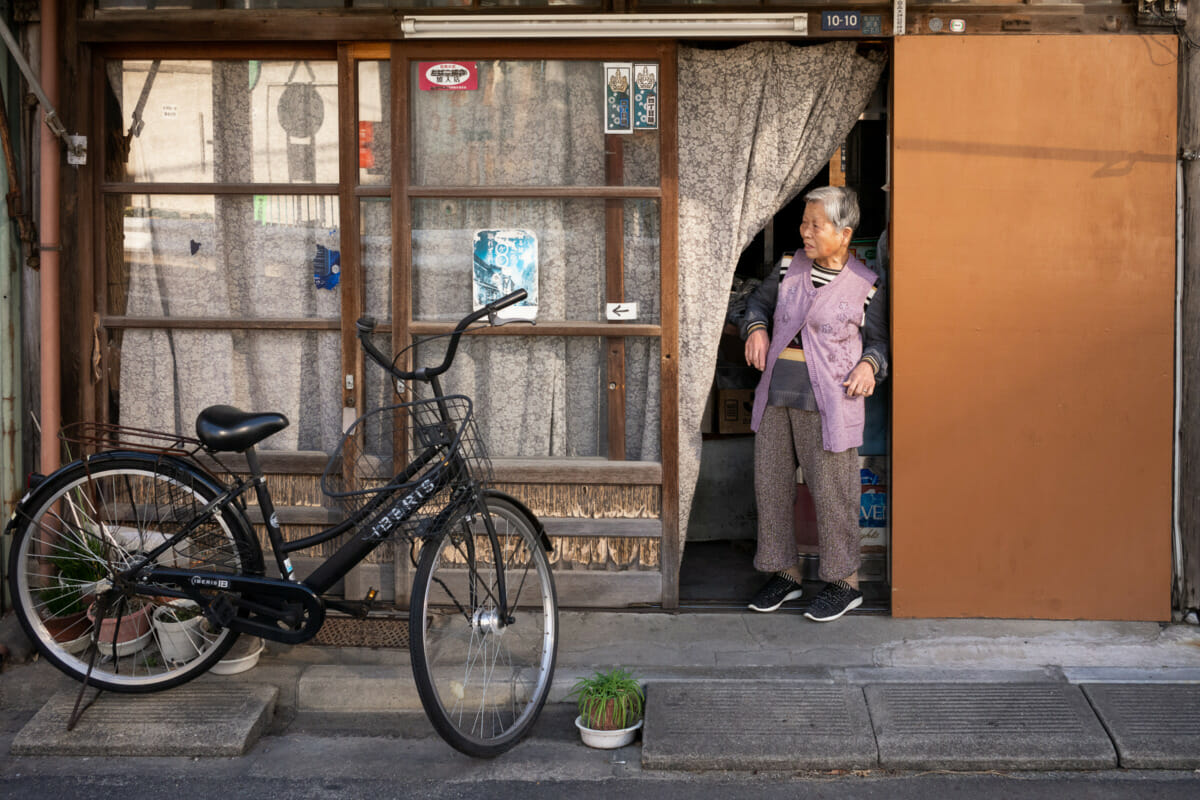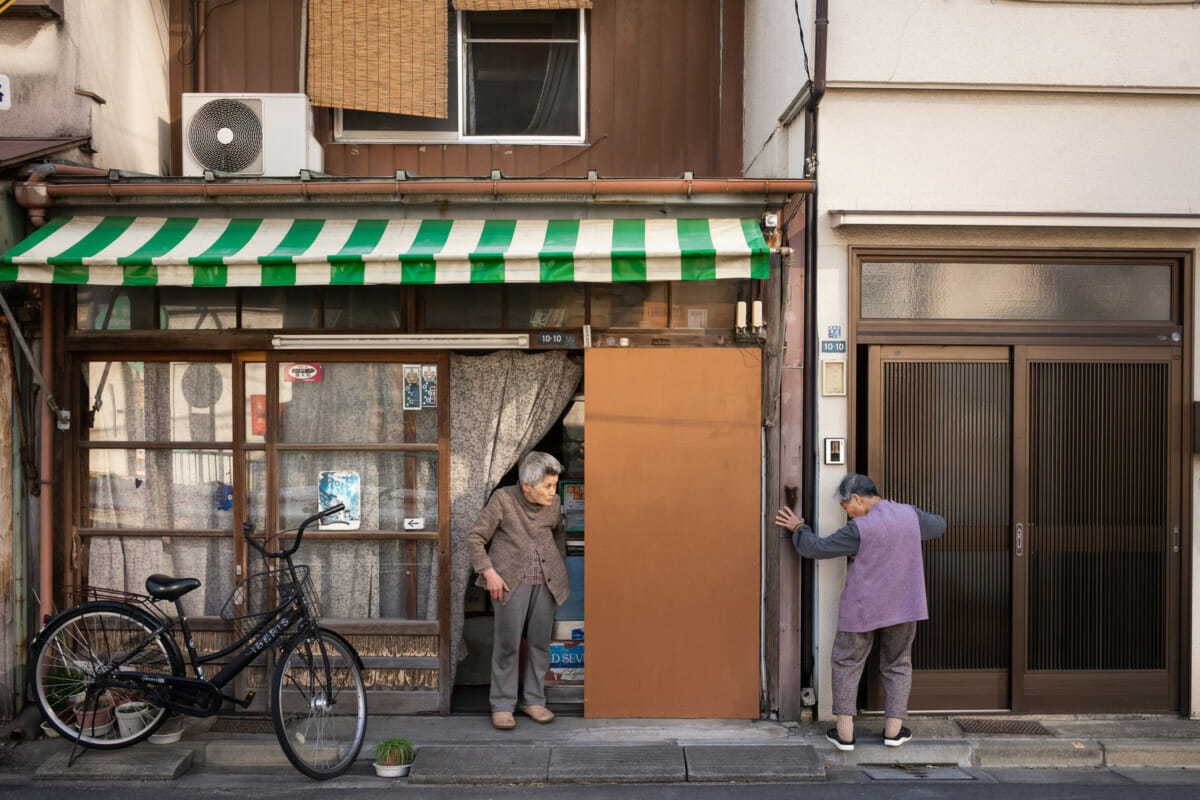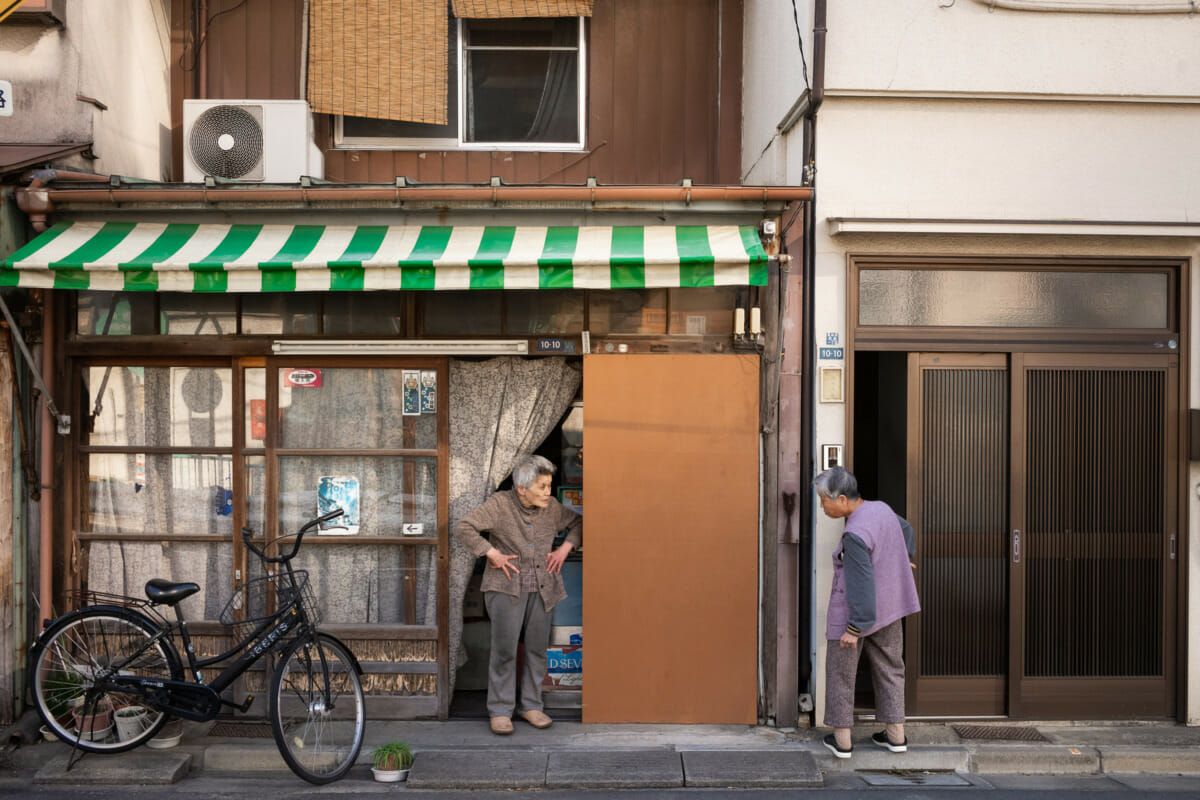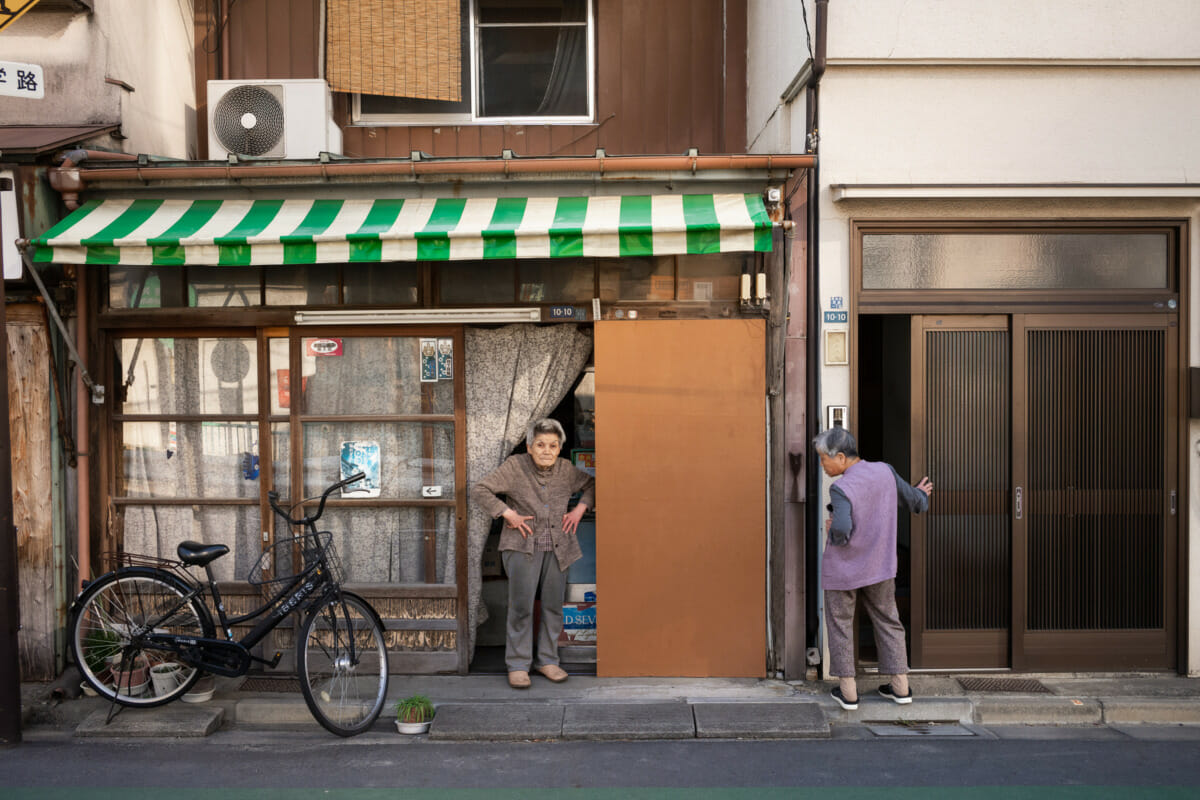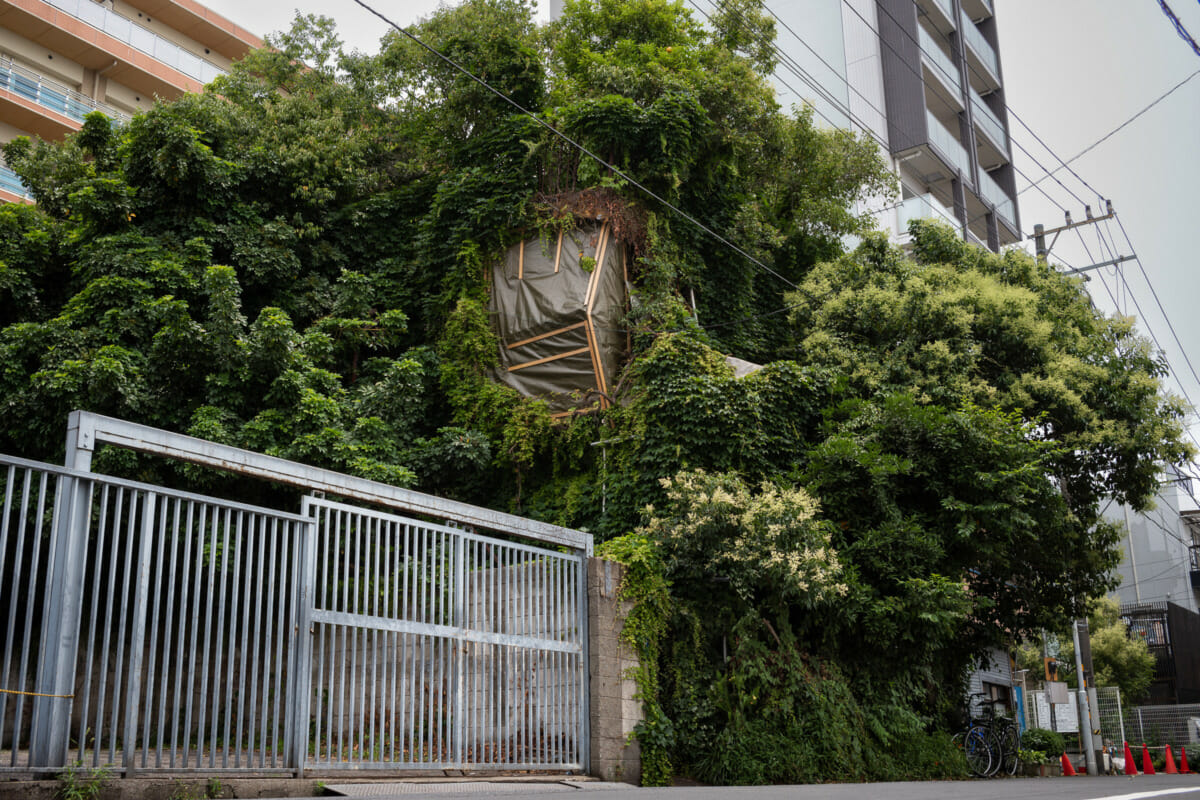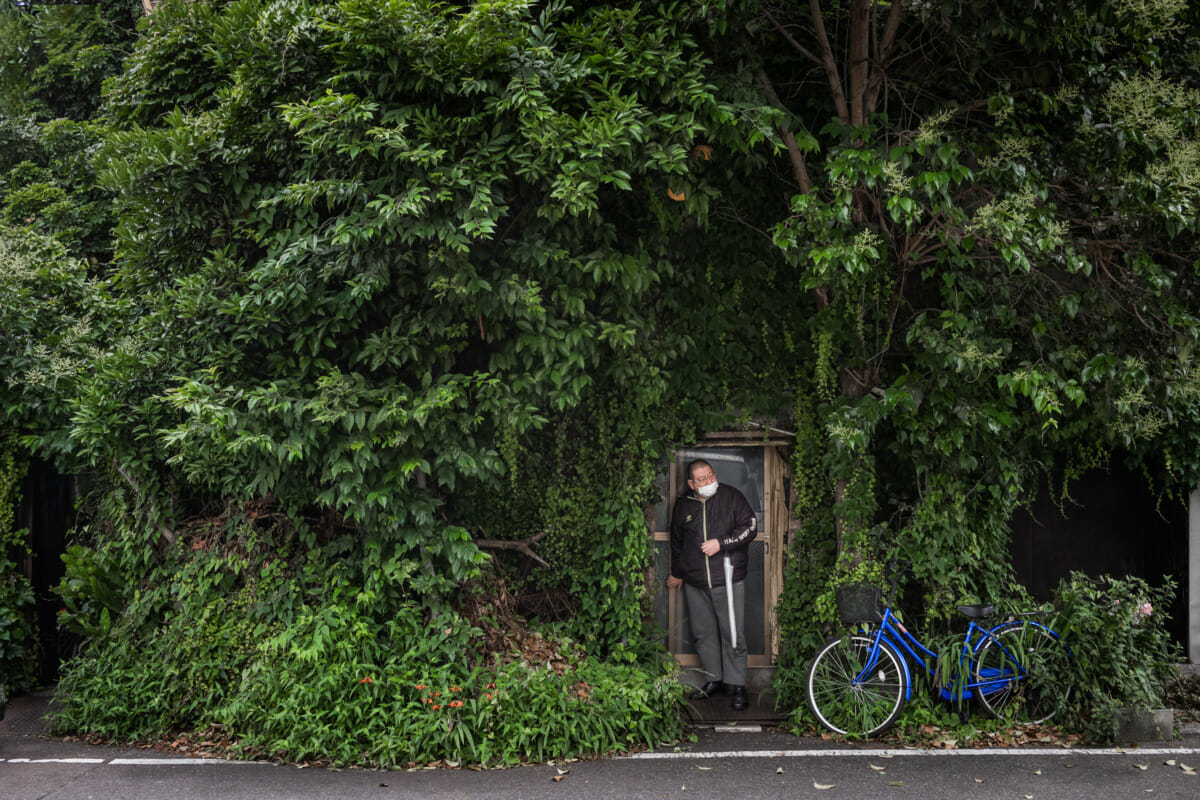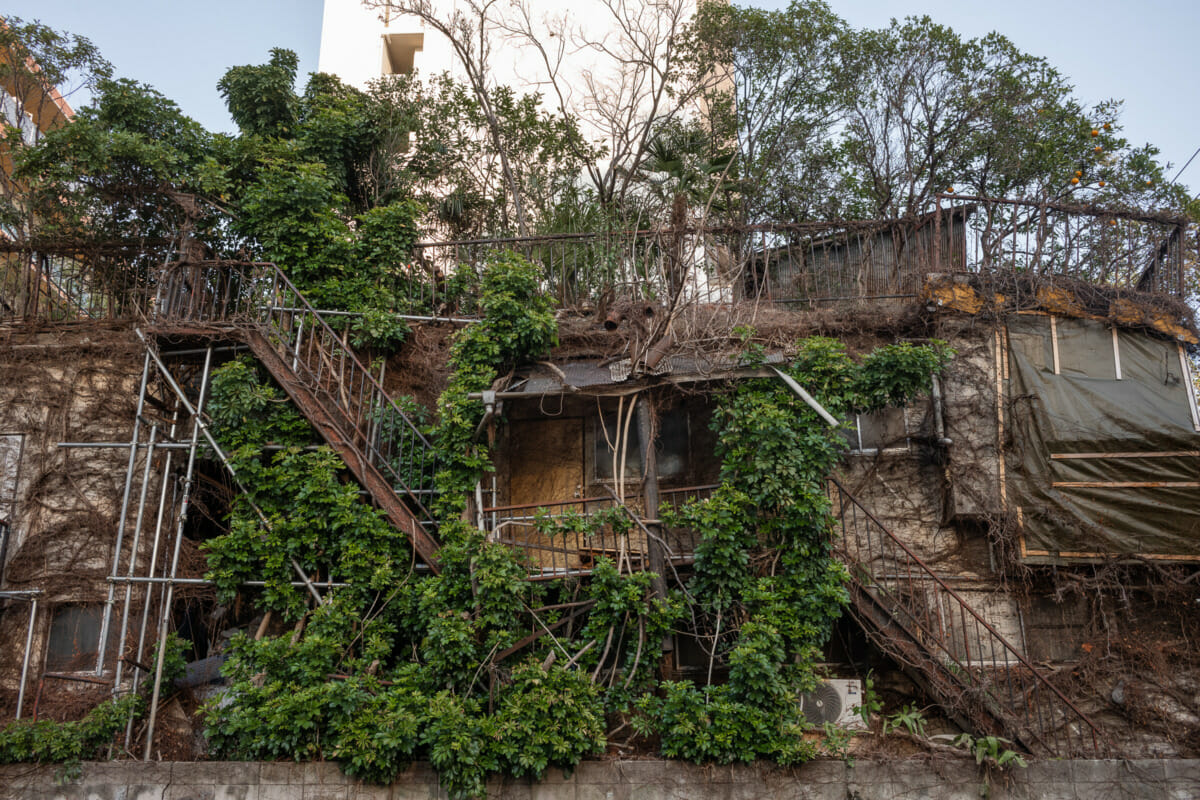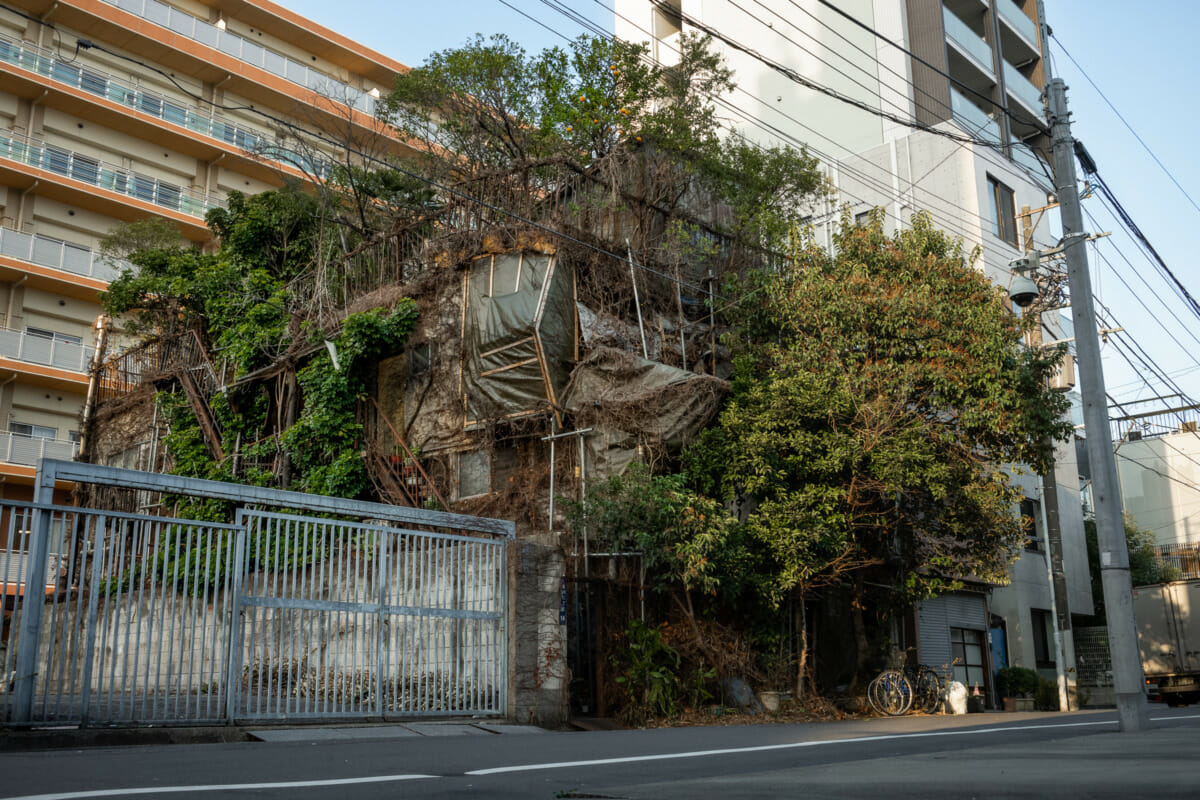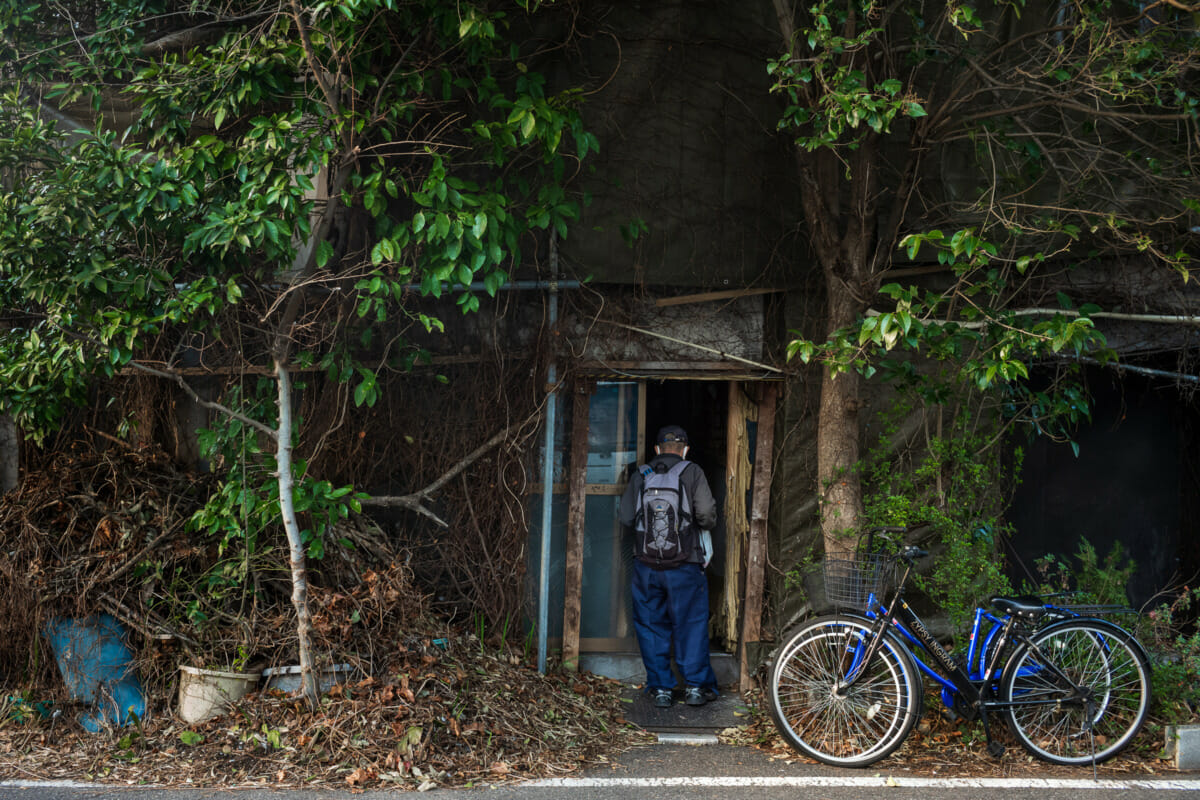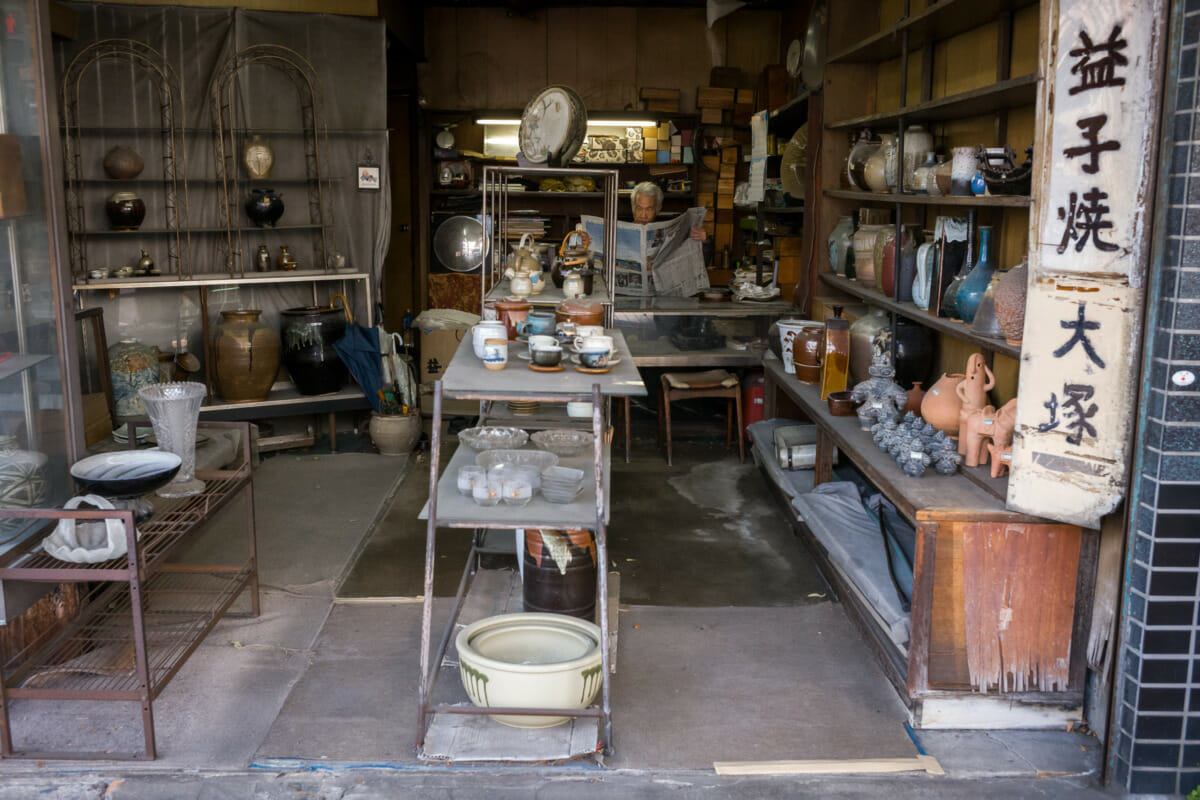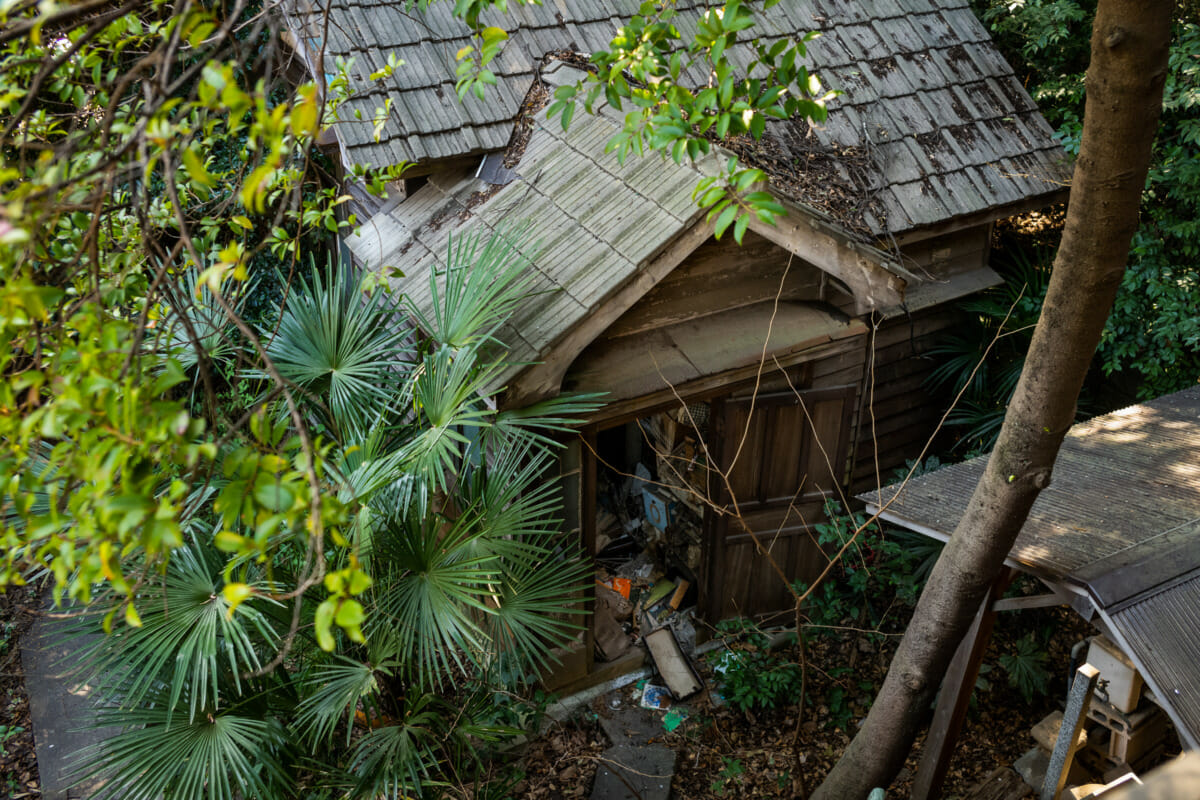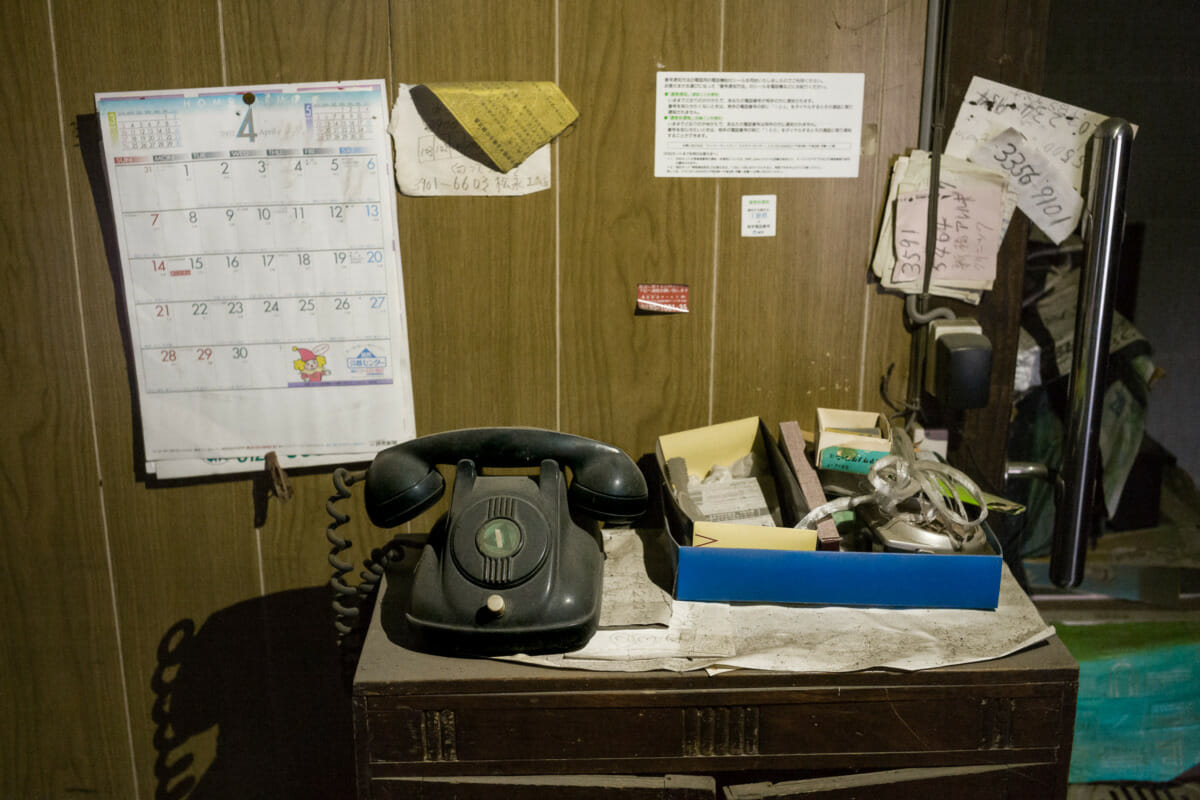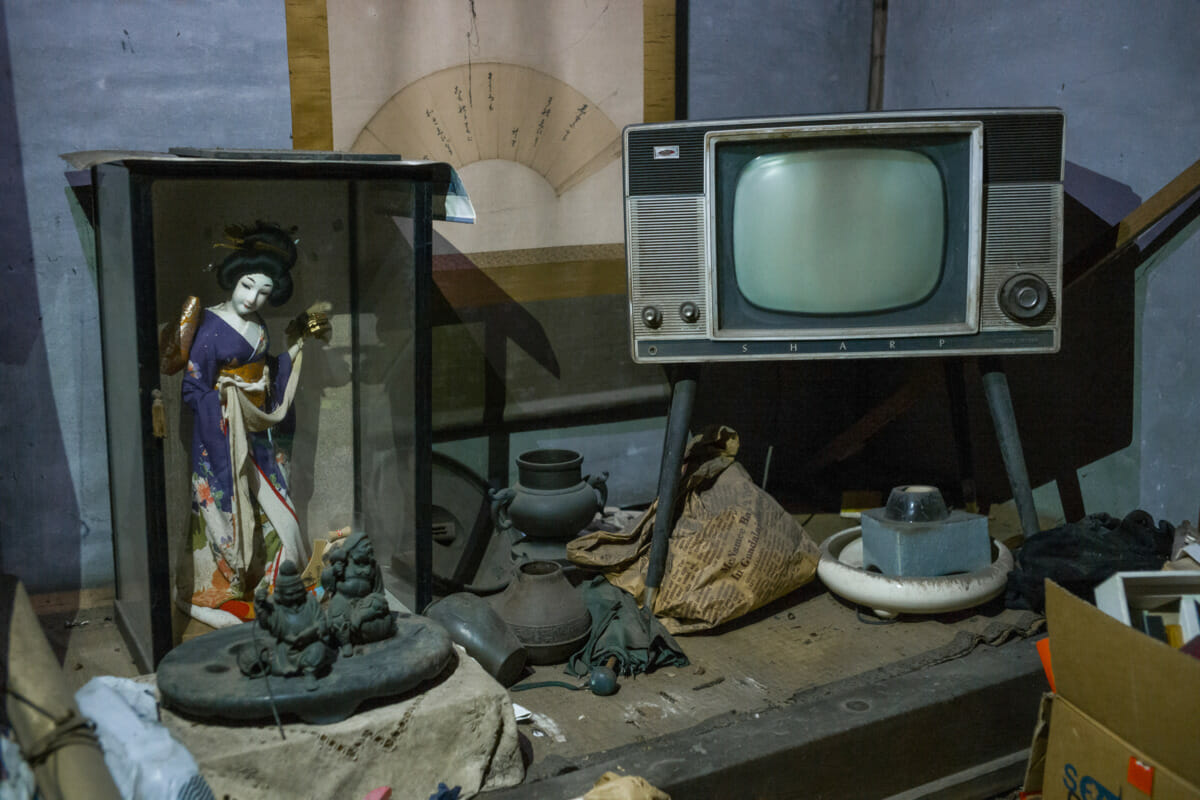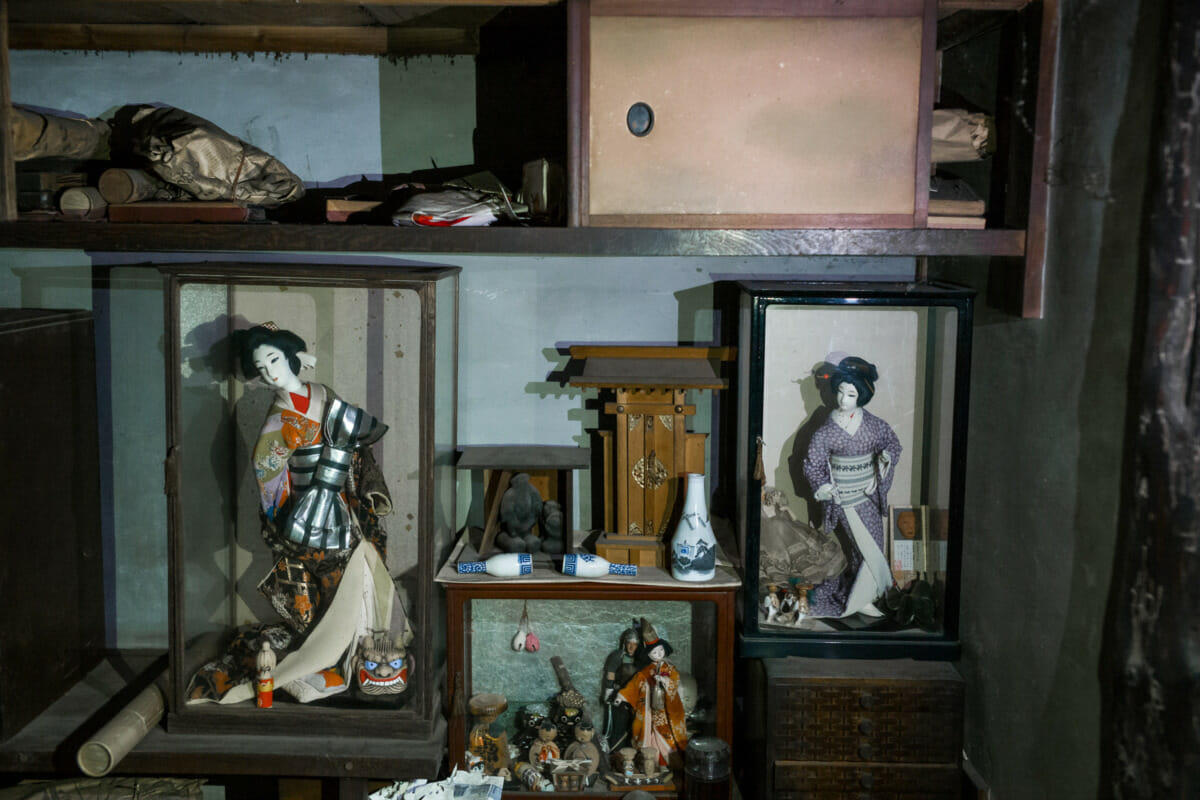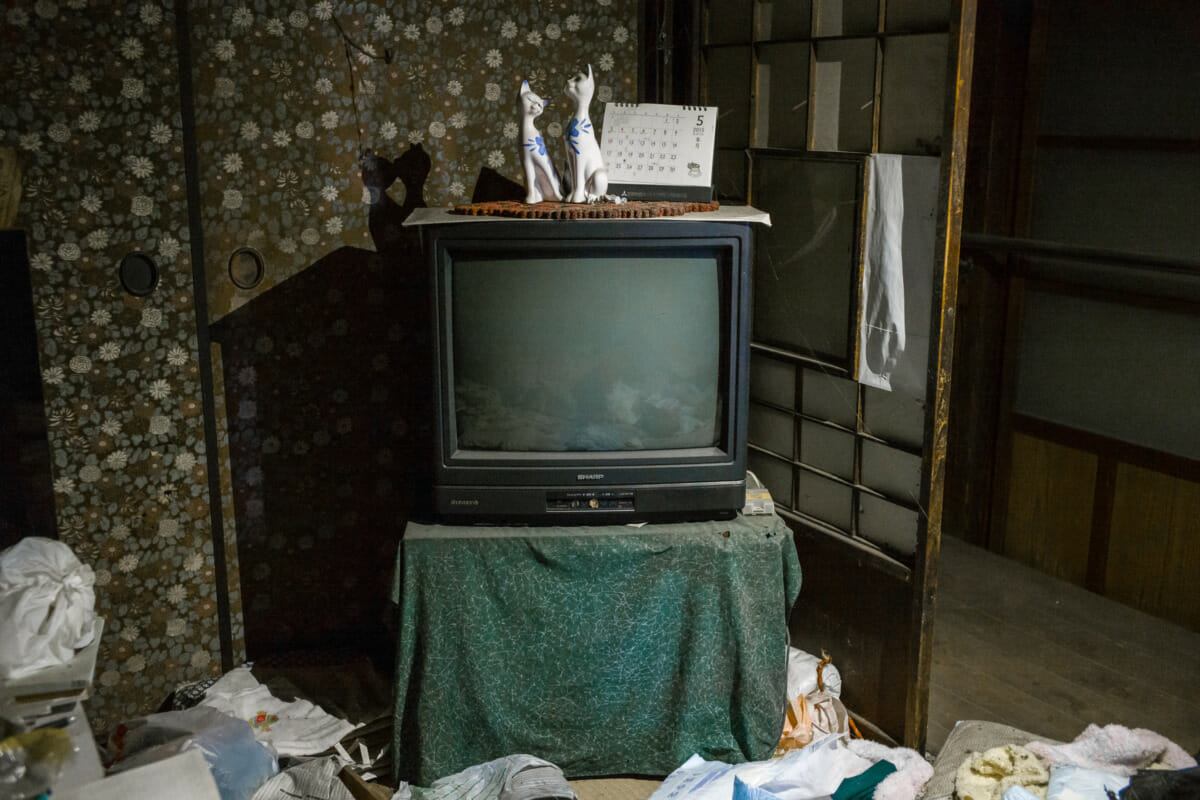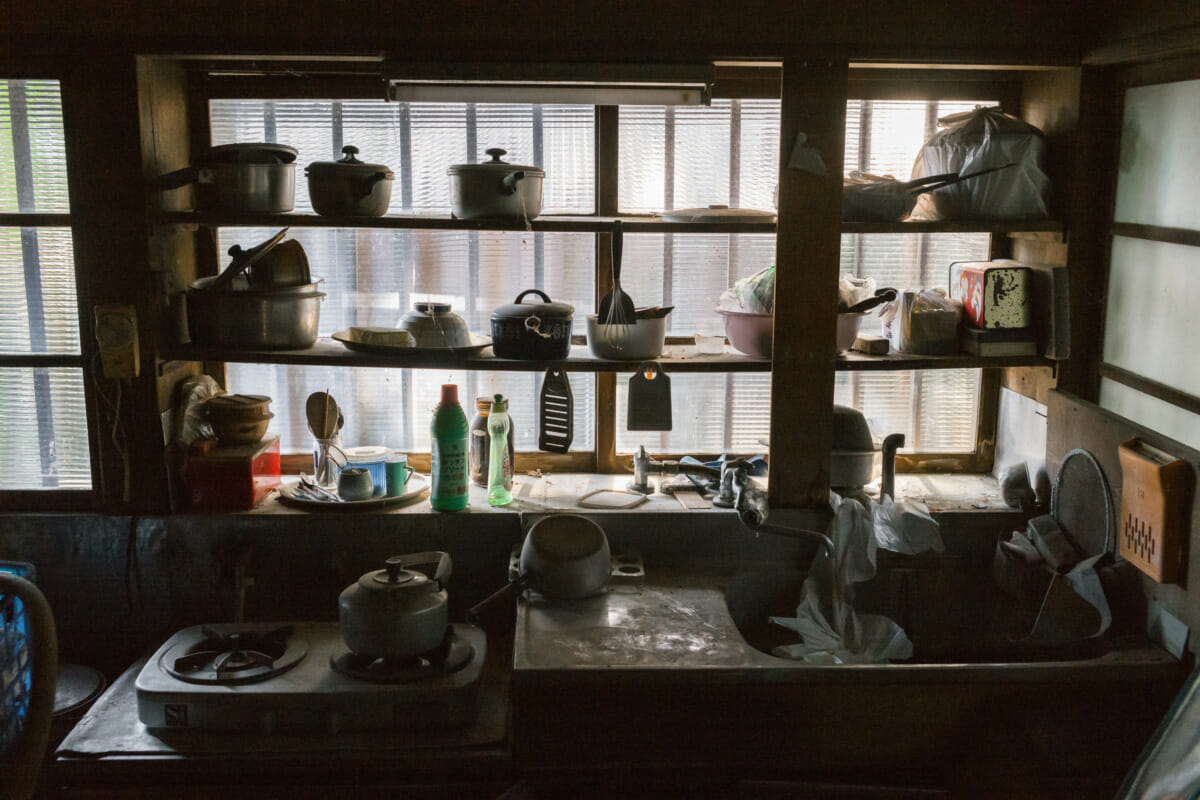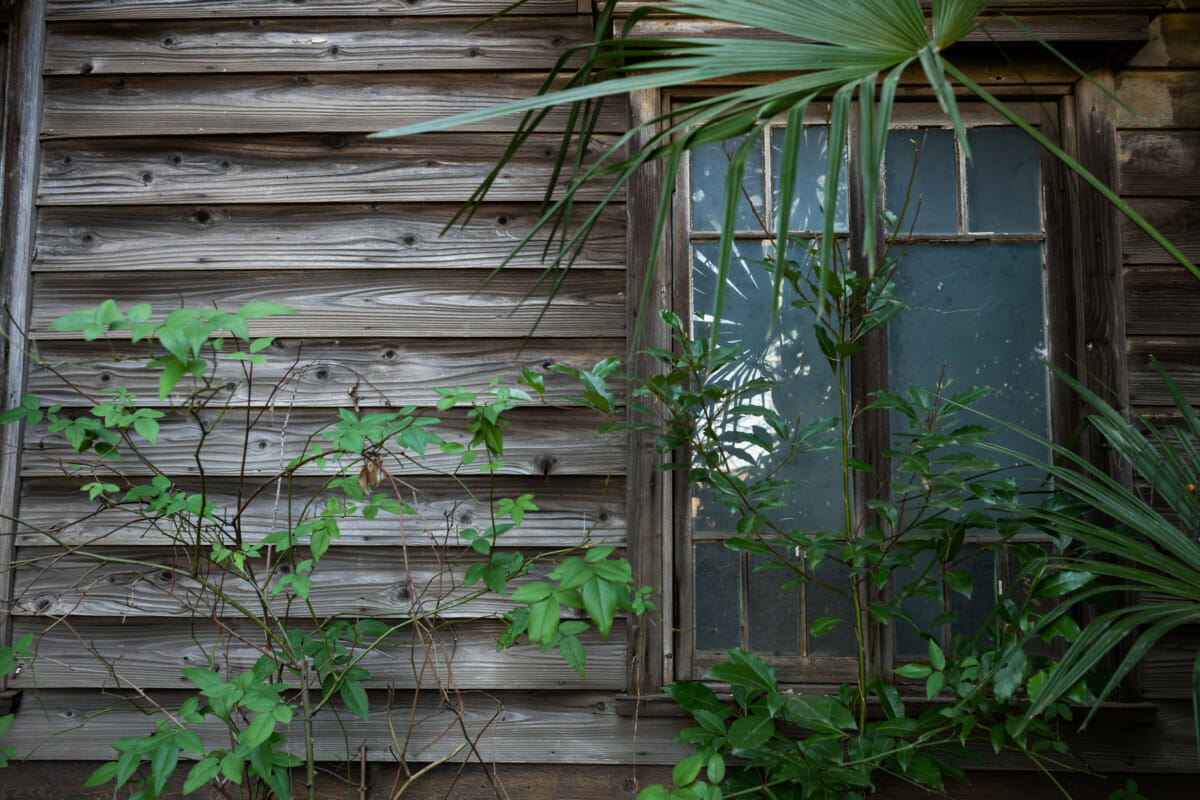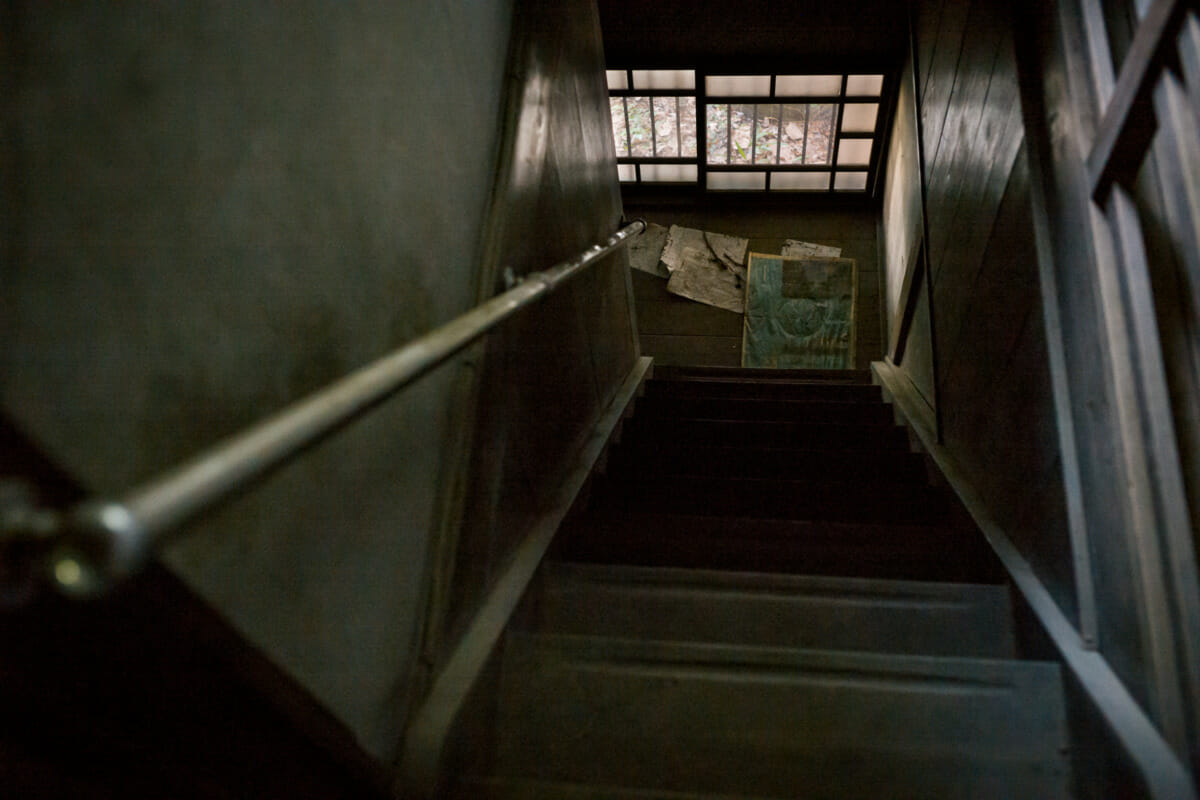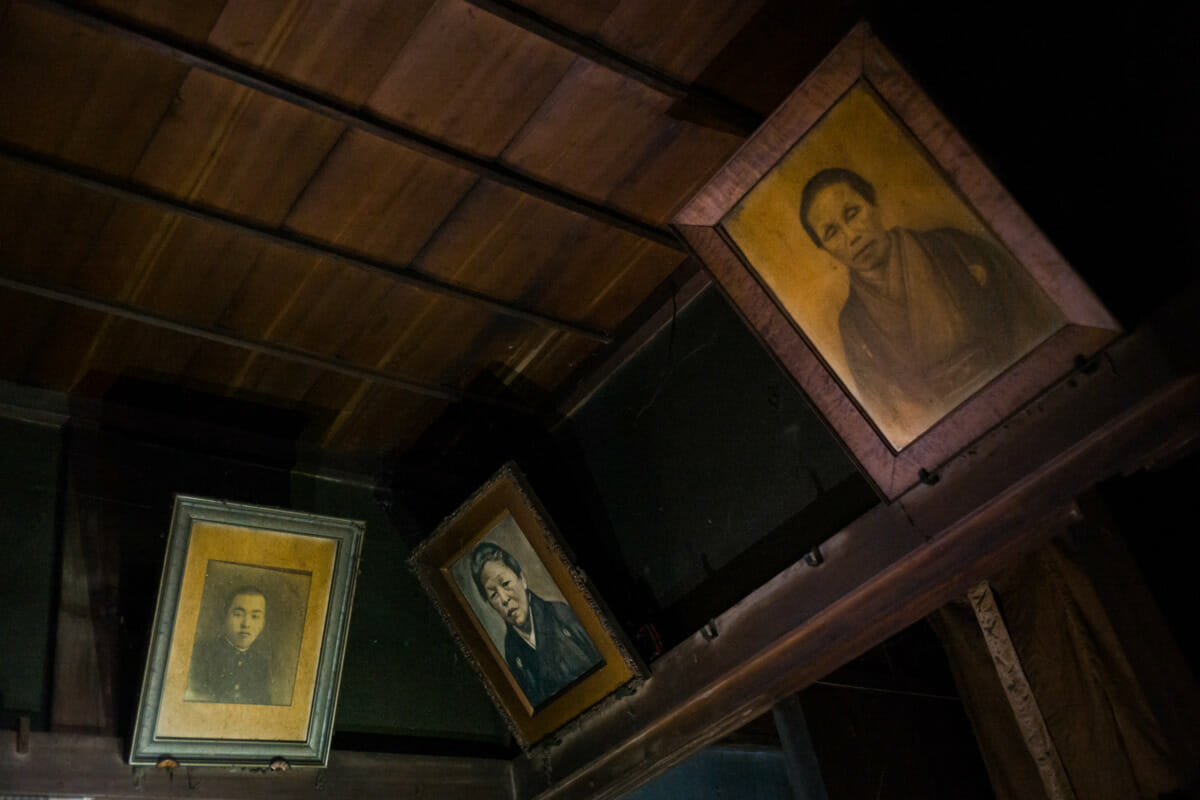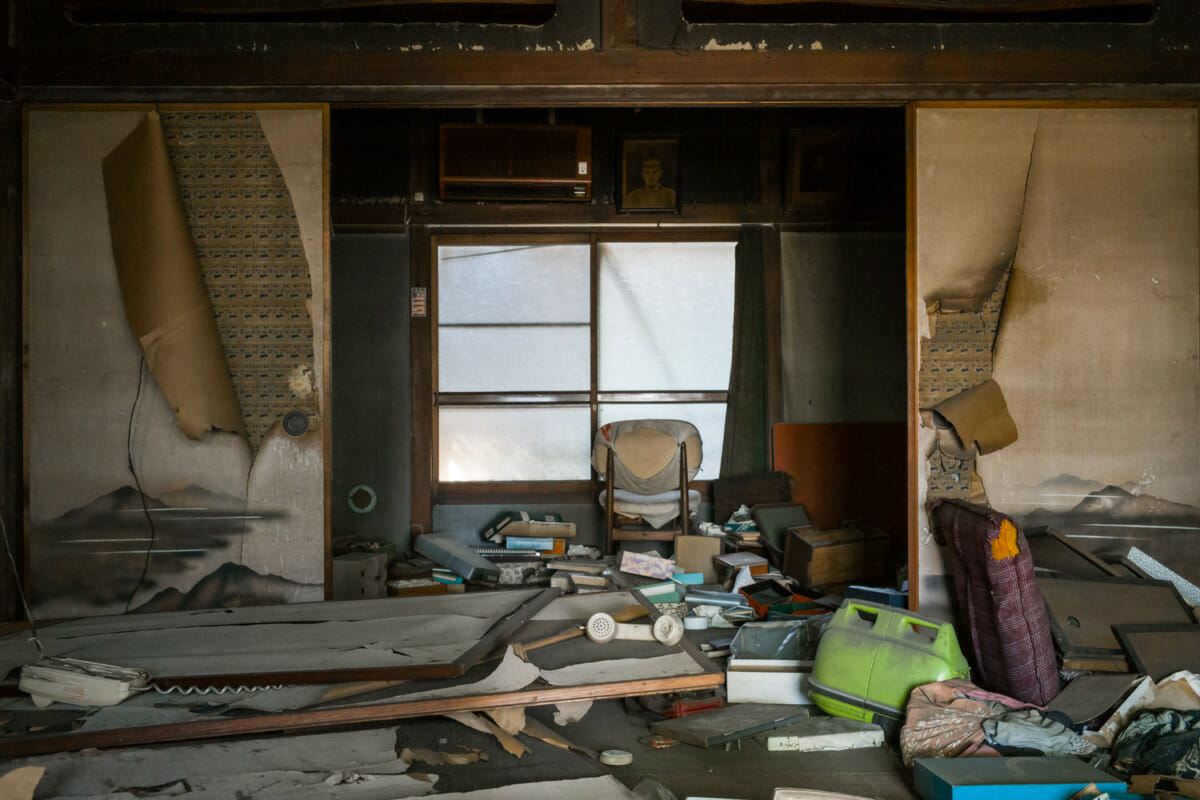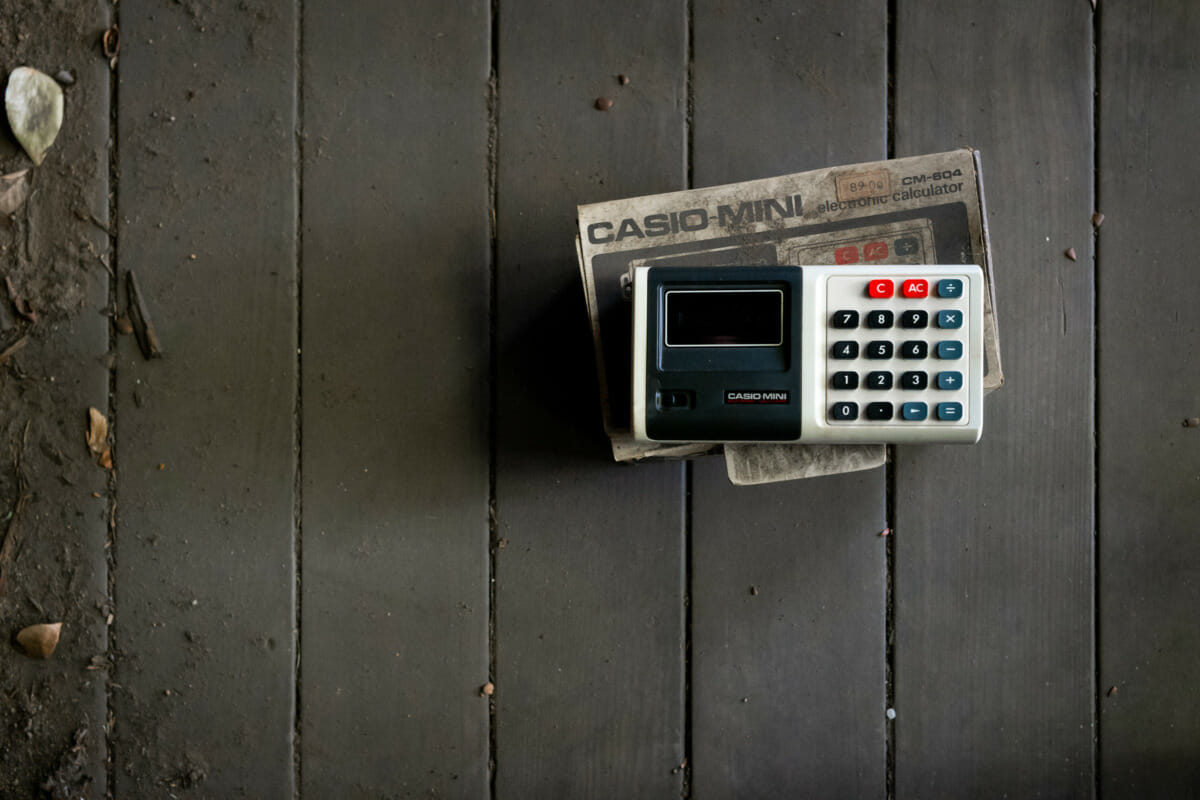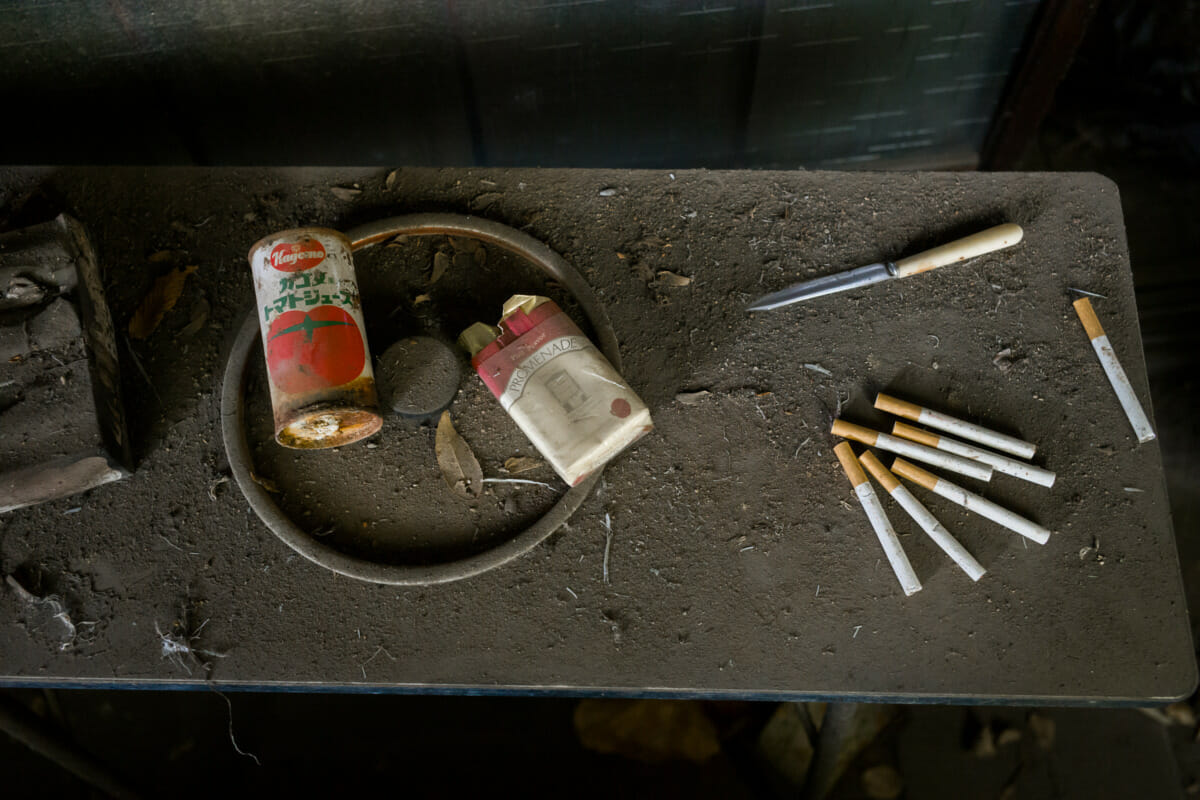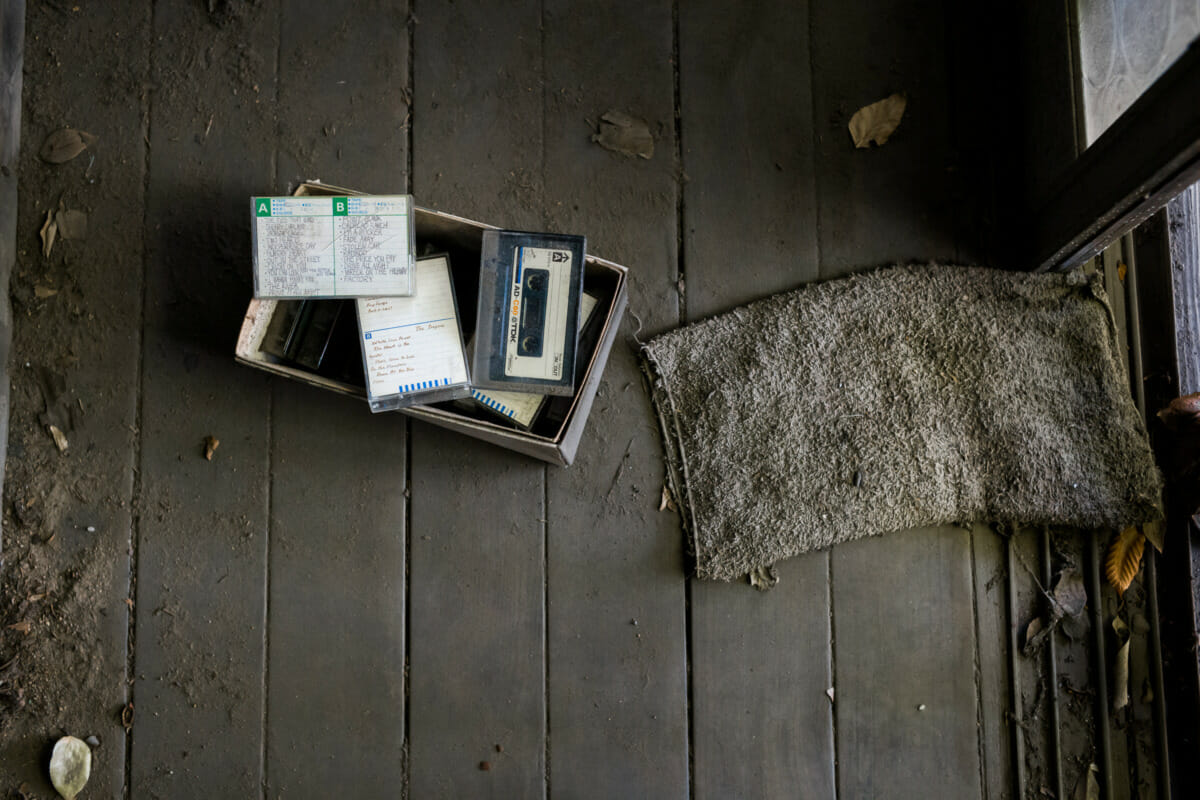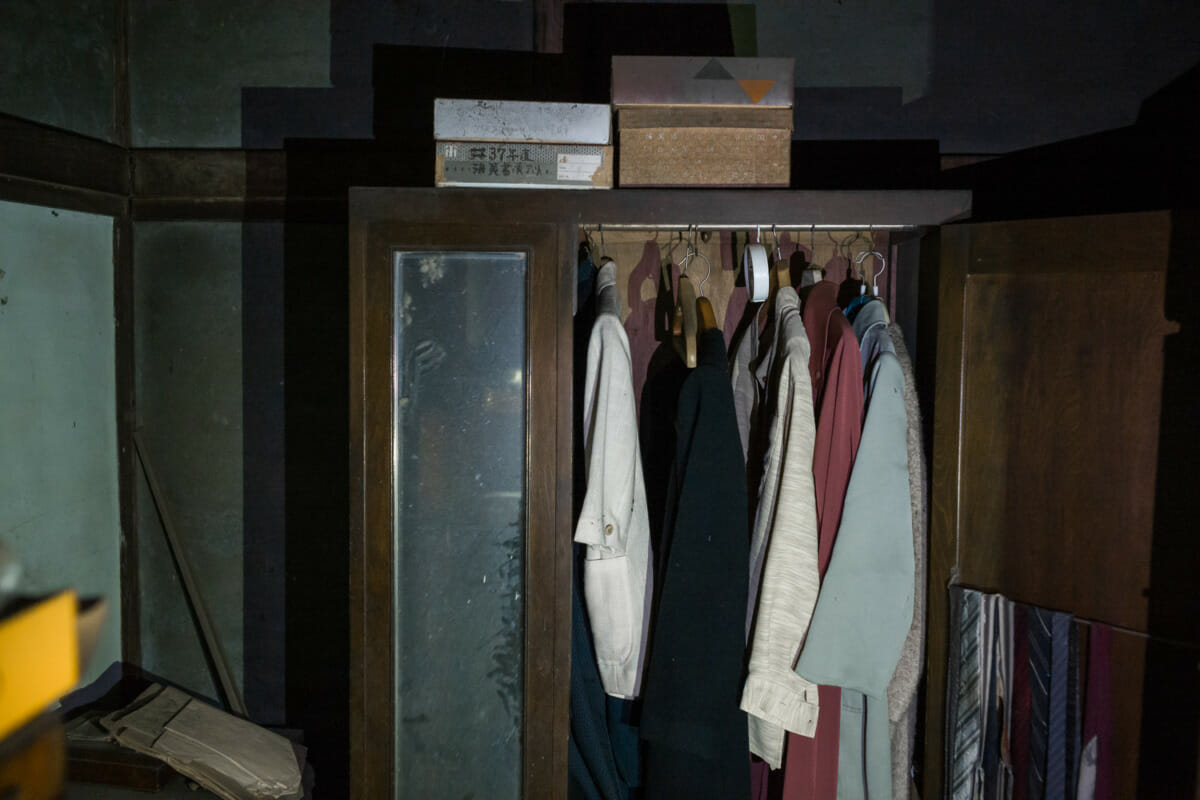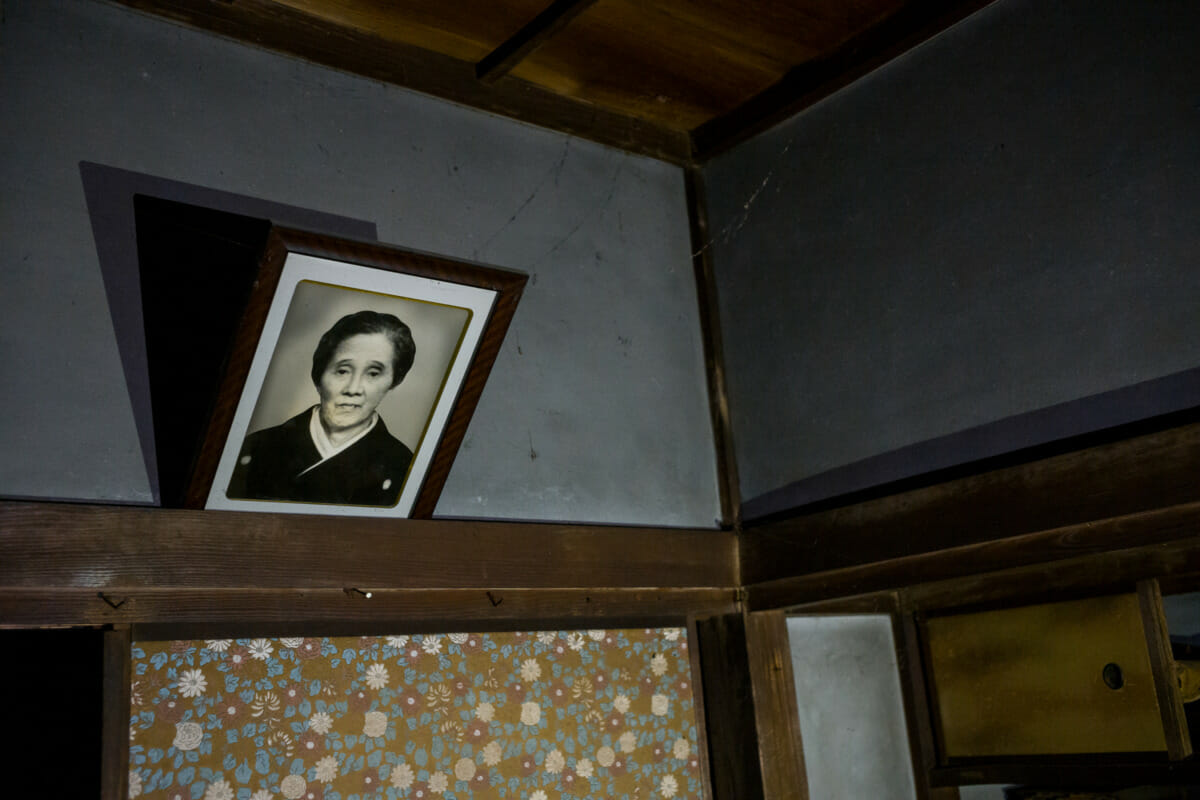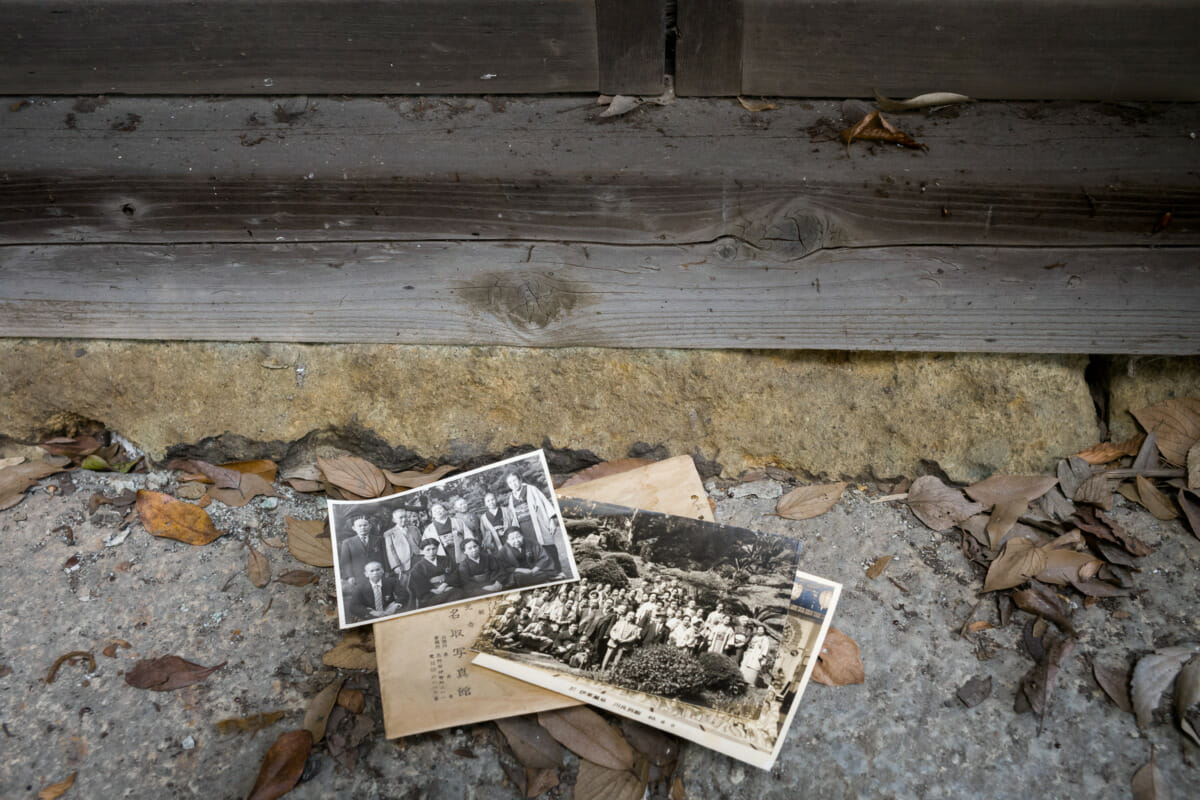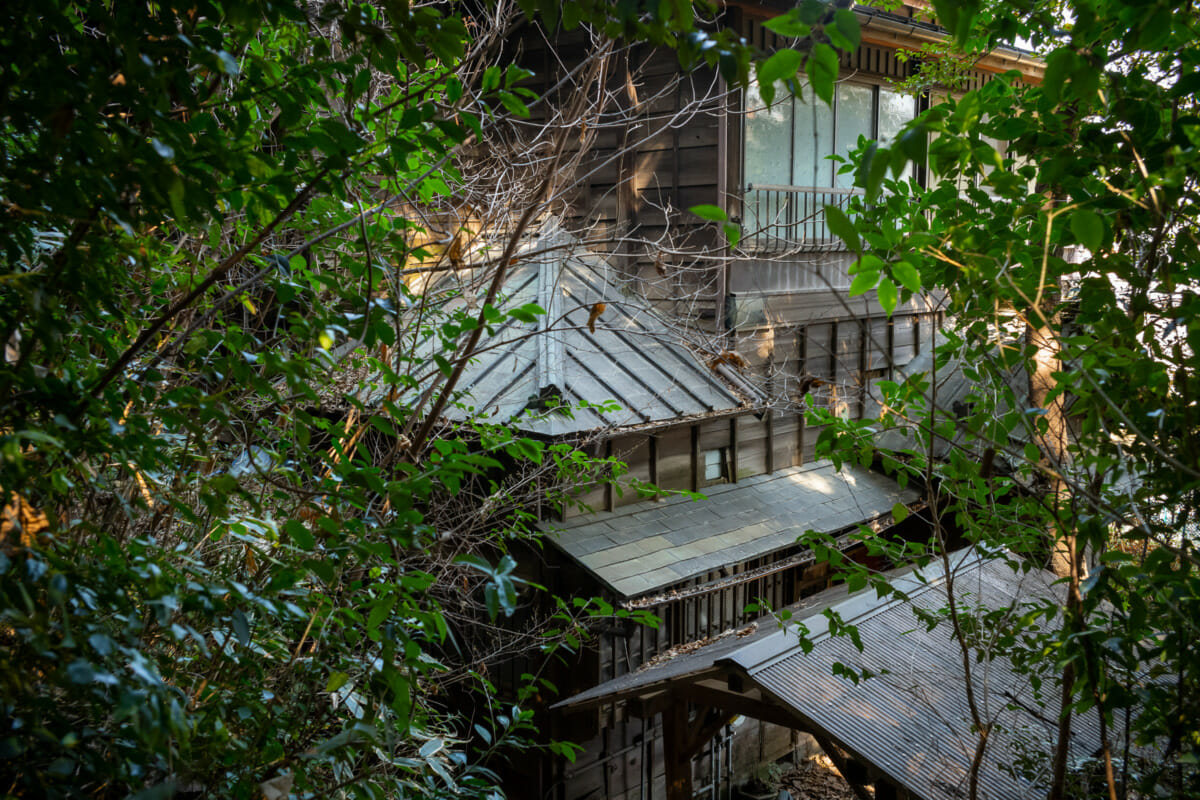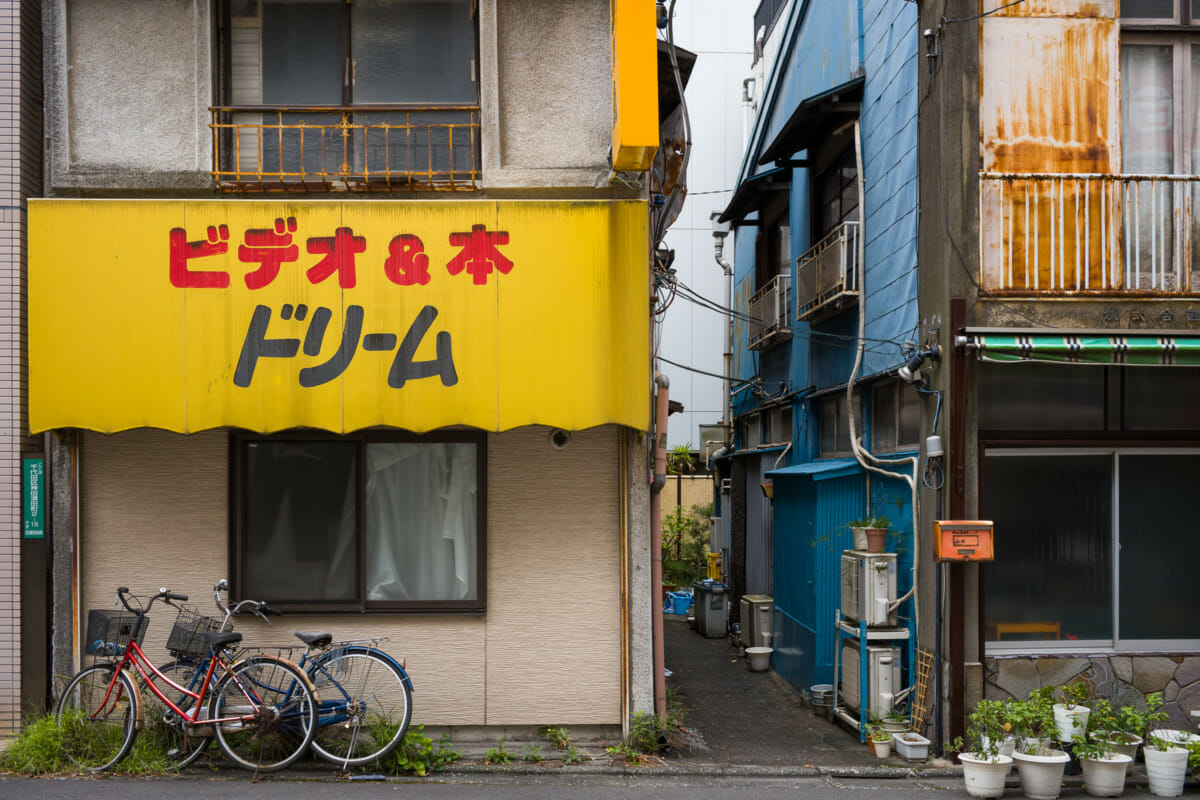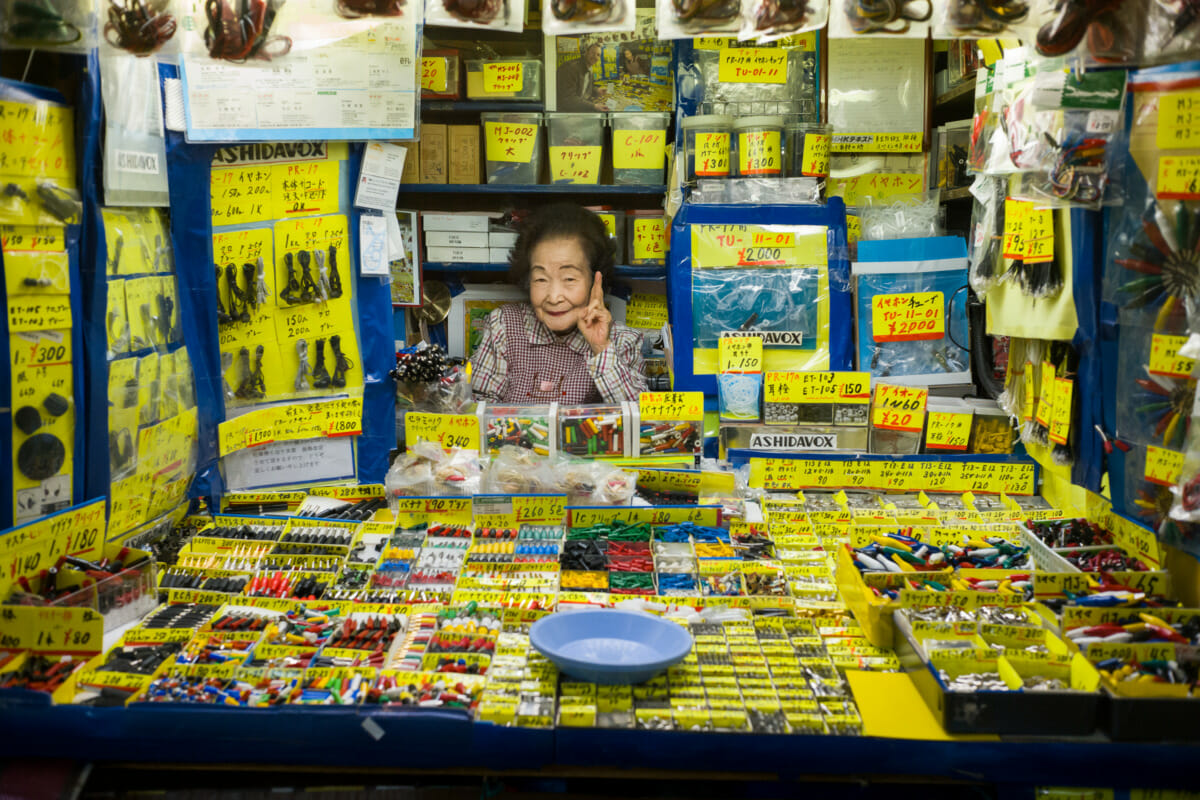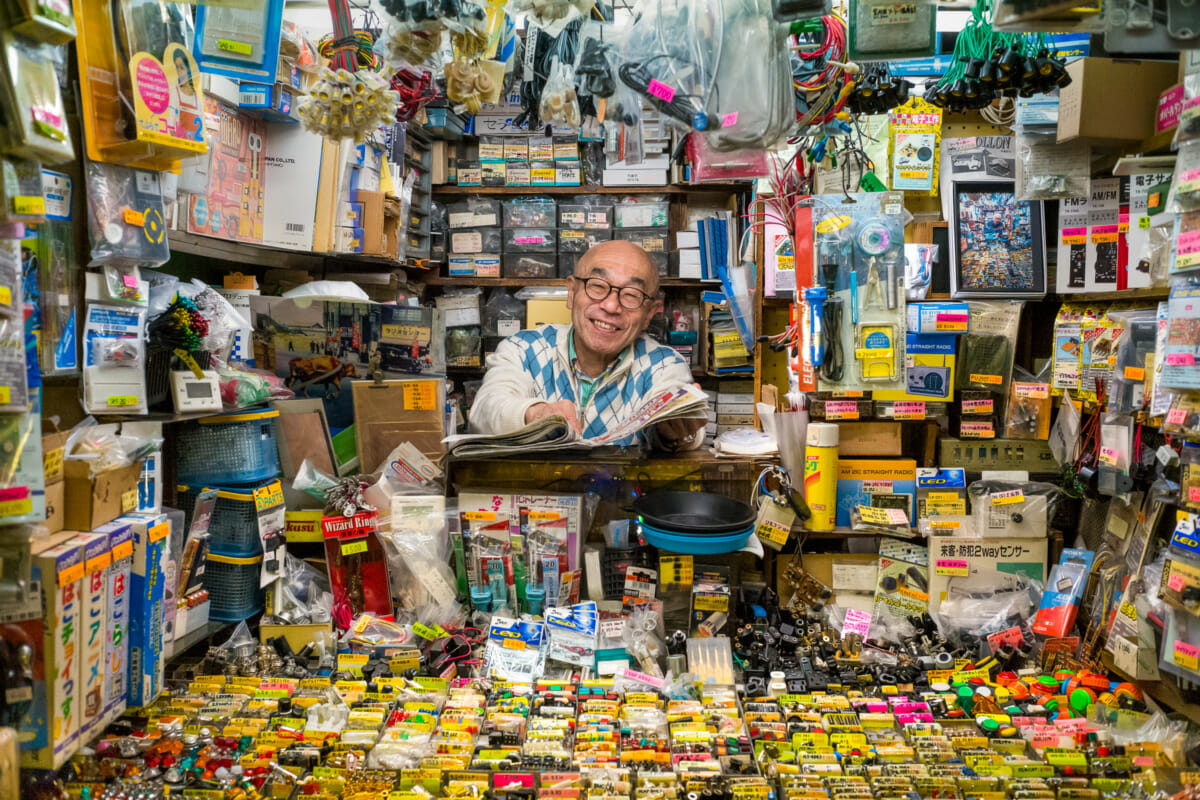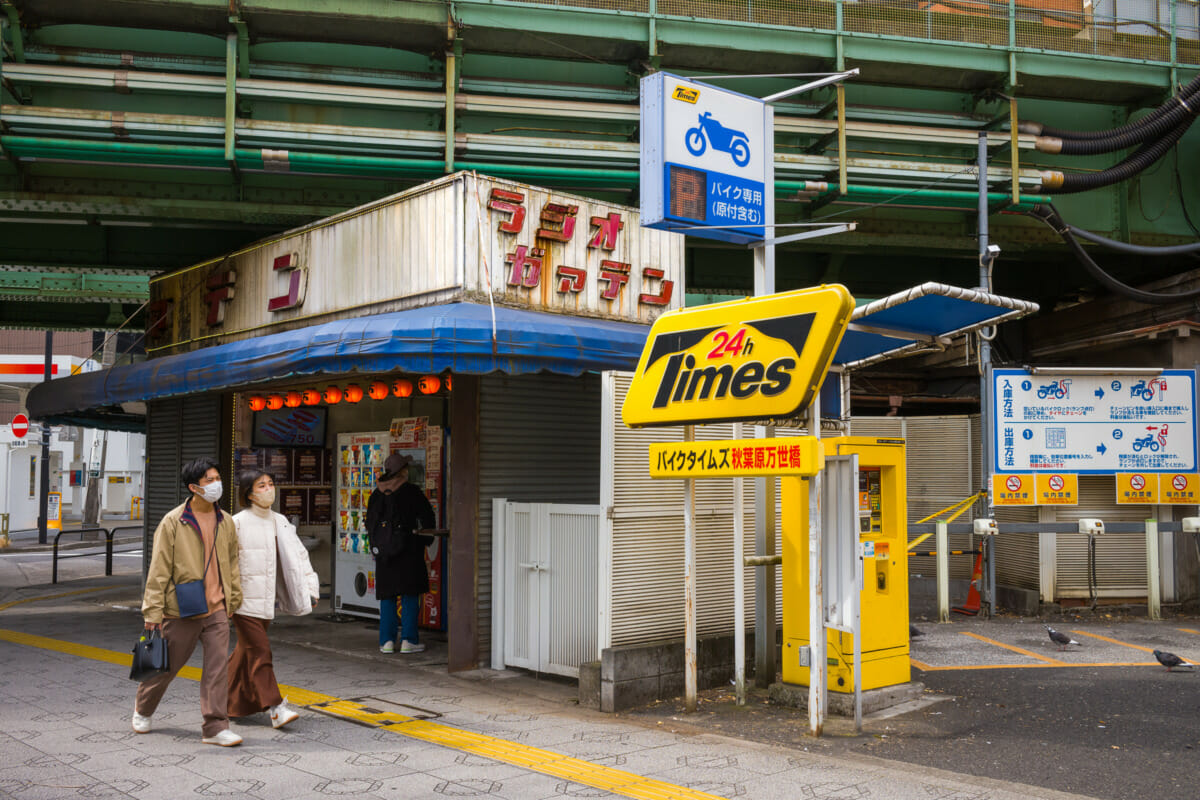This shuttered up old Tokyo liquor store is a joy to behold all by itself with its wonderfully rusted exterior and similarly decaying signs. But then add in the busted old vending machines and the retro window sticker, and it’s elevated to something really quite special. All of which was made even more appealing with an appearance by the owner as he headed out with his towel and toiletries to the local public bath.
Neighbourly interaction in an old and traditional Tokyo street
Community life in most of Tokyo’s countless apartment buildings is distinctly lacking. People generally keep themselves to themselves, and after over a decade of living in my place, the most I get from the vast majority of residents is the briefest of greetings or a cursory nod at best. That said, one older lady has always chatted, and knowing my wife died she’s made a real effort to check I’m doing ok, offering advice and encouragement from her self-proclaimed role as my Japanese mum, which as you can imagine feels absolutely lovely.
In the city’s older, and more traditional neighbourhoods, however, it’s possible to see much more in the way of interaction. Particularly so with the elderly residents, as many of them have quite possibly known each other their whole lives, or at the very least for many decades. And so below then is one such example.
The incredibly dilapidated state of an old Tokyo hotel
Last summer I documented this crumbling, and at the time fabulously overgrown old Tokyo hotel.
Needless to say it isn’t one of Tokyo’s regular places of stay, as along with its appearance, the business caters to the city’s poor, situated as it is in an area filled with similarly cheap and visibly rundown accommodation. That said, none of the others look anything quite like this one. Words simply can’t describe its patched up and ramshackle nature. In fact I’m not even sure photos do it justice either, but here at least is an idea of what it looked like last week before that lush summer camouflage completely covers it once again.
An old Tokyo ceramic shop that hasn’t changed in decades
This dusty old Tokyo ceramic business has been in operation for nearly half a century, and it’s fair to say that every single year is there to see in the incredibly faded surroundings. Something the current, and second generation owner doesn’t seem to care about in the slightest, making it one of Tokyo’s many such shops. Places that continue to open on a daily basis simply out of habit rather than any real sense of actual commerce.
A dark and abandoned old Tokyo house
Tucked away in the middle of some trees with many of the window shutters sealed tight, this old house had quite the atmosphere. A certain sense of darkness in more ways than one, particularly with large photos and paintings of long dead family members, and possibly former residents, always looking on.
Unusually, the calendars upstairs and downstairs differed considerably, and what was once more than likely a multi-generation household, clearly ended up with just the downstairs rooms being used. Presumably by a lone elderly person. The setup and stuff left behind also suggestive of someone who was quite possibly bedridden, and almost certainly receiving medical care. Factors that could also help explain some of the incredibly dated technology found on the same floor despite the last calendar being from 2015.
All that, however, is speculation and educated guesswork at best. What the true story is, and who those people were, will more than likely remain unknown. The photos below then are mere records of far more important moments now forever lost.
Akihabara photos and fixtures of the past
Tokyo’s Akihabara district has come a long way from its days as a place to pick up handmade radios and their components in the post-war period. There are actually still options for such do-it-yourself approaches if you look carefully, but unsurprisingly they are nowhere near as numerous as they once were. In fact the area’s later transition to more general Electric Town, where one could buy all kinds of electronic goods along with their associated products, has in many ways now been usurped by anime, manga and maid cafes.
Below then are some remnants of that earlier past, as well as a couple of those few remaining component shops that have closed in the last couple of years.
Dream video and book shop in the first photo isn’t so far from the station, and yet despite being closed for what seems like a considerable amount of time, the awning still looks lovely. The two tiny shops I’ve shown on these pages before, but I always feel they are worth looking at again. In fact now more than ever, as neither of them exist anymore. And the last photo — which actually prompted the post — in many ways sums up the changes the area has seen. An old, former electronic parts outlet (there’s a photo of it here in 1952), that has a modern car park on one side and a rather fancy katsu vending machine inside. Although in a nice twist that in some ways brings the whole thing full circle, the food and machine are supplied by Mansei, a company that was founded in Akihabara way back in 1949.
